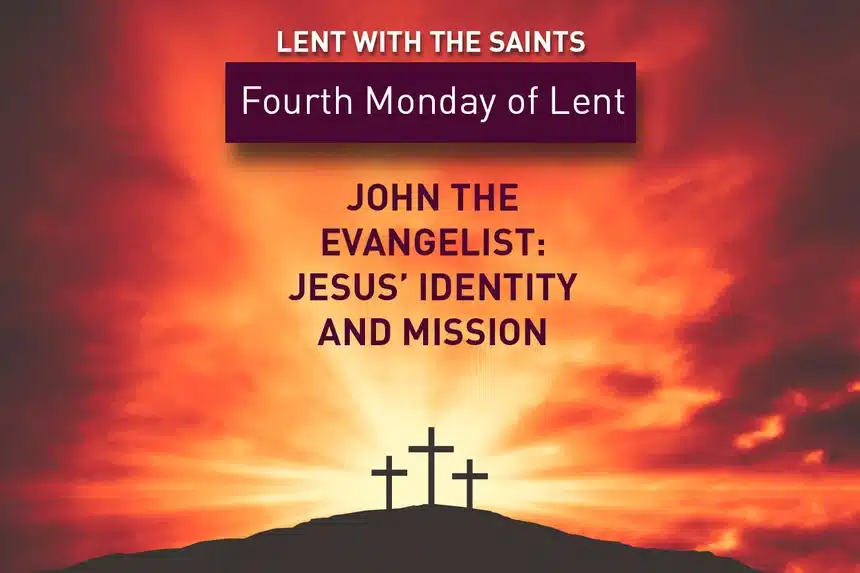Isaiah 65:17–21; Psalm 30:2, 4, 5–6, 11–12a, 13b; John 4:43–54
Today begins a semi-continuous reading of the Gospel of John. The organizers of the Roman Catholic Lectionary for Mass wanted to present a healthy portion of the fourth Gospel, to help us appreciate its richness. The sequence of texts also helps us focus on the person of Jesus and his mission.
John’s Gospel is at once profound and elegantly simple. From its opening words announcing the Word made flesh, to the accounts of the signs of Jesus (such as today’s cure of a royal official’s son), to the three great scrutiny Gospels used in the rite of adult initiation, to the majestic Passion narrative, the fourth Gospel offers us a portrait of Jesus uniquely different from those of Matthew, Mark, and Luke.
The Gospel, in its simplest terms, shows us how Jesus has come to reveal the Father. In our lenten selections, that mission is presented in great dialogues between Jesus and his opponents. (The term “Jews,” used throughout these dialogues, reflects hostility between Christians and the Jewish synagogue near the end of the first century, not meant to foster anti-Semitic reading of the text into our time.)
We’ll hear those dialogues over the next two weeks, cast in a kind of courtroom drama. Jesus testifies to his identity and mission. His opponents are frustrated as Jesus presents evidence of the works he has performed in doing his Father’s will. He calls Abraham as a witness and claims identity with God in the divine name, I am. In a season that asks us to scrutinize our Christian identity in preparation for the celebration of baptism and renewal of our commitment to Christ, John’s Gospel is an ideal companion for prayer and reflection.
Today’s Action
Take time to read an introduction to the Gospel of John in your Bible or in a Scripture commentary.
Prayer
Word Made Flesh, show us the Father.
May we accept your truth and come to have life in you!
Amen.








